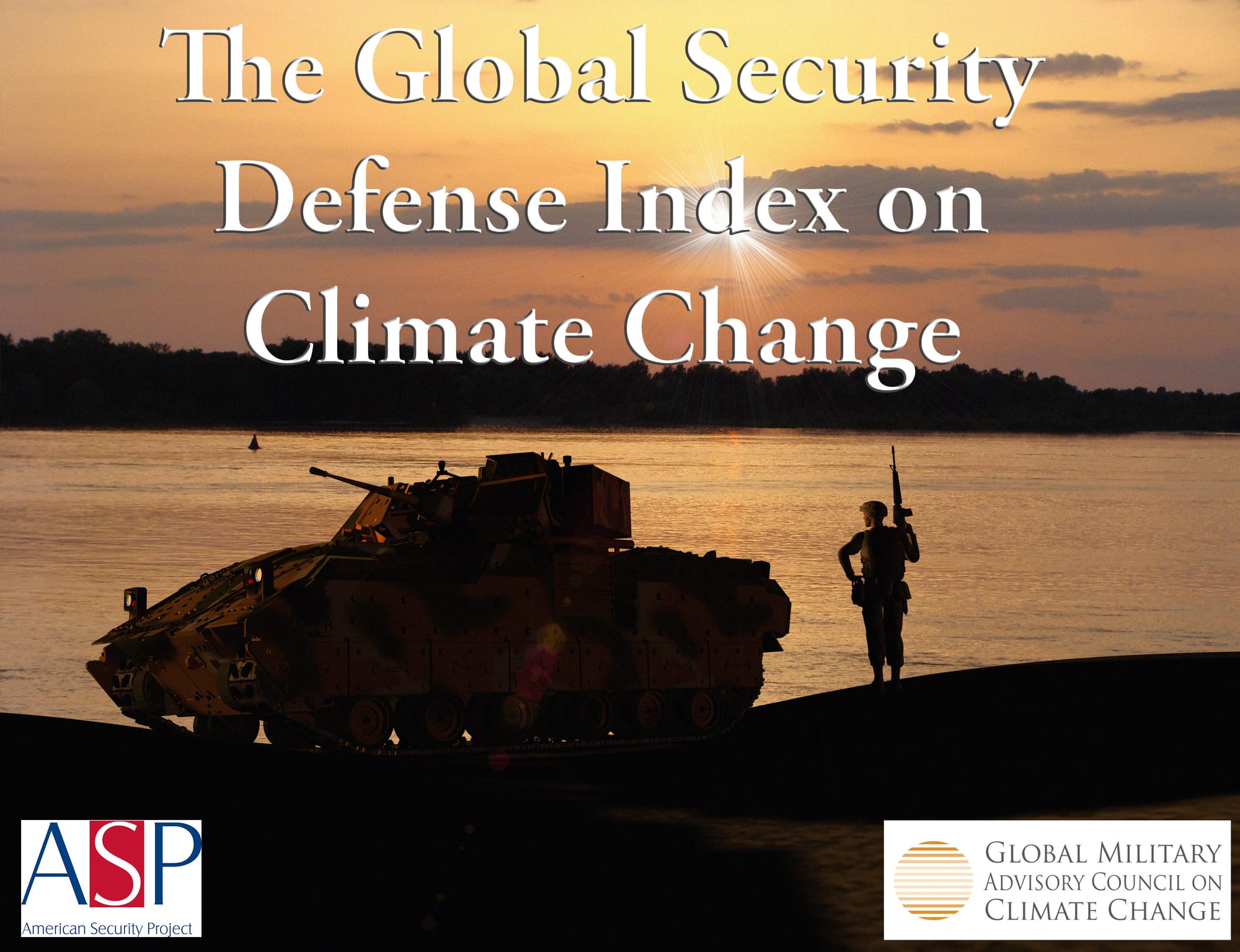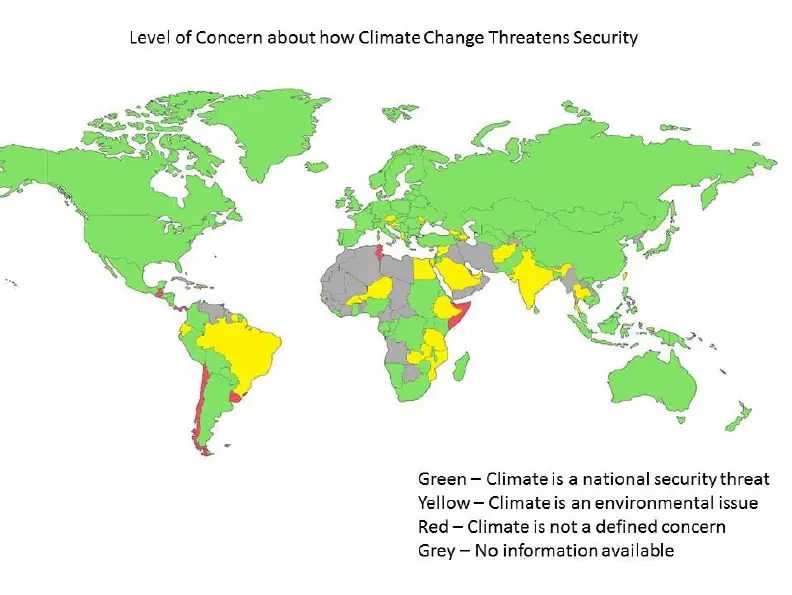The Global Security Defense Index on Climate Change

Military Perspectives on Climate Change From Around the World
The American Security Project (ASP) – an institutional member of GMACCC – has released the preliminary results of a new resource on climate change and national security: The Global Security and Defense Index on Climate Change.
The Index analyzes how governments around the world and their militaries plan for and anticipate the strategic threats of climate change.
The project determines to what extent governments around the world consider climate change to be a national or international security threat and how have they enshrined such a concern in their official documents and statements. The project will centralize the varying attitudes of national militaries and security establishments toward climate change in the hopes of providing unique insight into national, regional, and multilateral security approaches to the issue.
The results show that over 70% of the nations in the world view climate change as a serious national security issue.

The armed forces of a variety of countries share this view, with players as surprisingly disparate as China, Kiribati, Rwanda, and Belarus all in agreement on the threat climate change poses. Western, eastern, rich or poor, the consensus on the climate threat seems easily apparent.
The preliminary results of the Defense Index are being released in both Washington D.C. and Seoul, South Korea at the Climate Security Conference in the Asia-Pacific Region to a high level group of ministers and experts.
Going forward, the Index will be published online so that anyone in the world can read and debate how to take this series national security issue forward.
| Author(s) | Andrew Holland and Xander Vagg |
| Publisher(s) | American Security Project |
| Place Published | Washington, D.C. |
| Date / Journal Vol. No. | 21 March 2013 |
| Pages | 10 |
Editor’s Note: The index, itself, with the first set of Individual Country Reports cover Bangladesh, Brazil, Canada, China, Guyana, India, South Korea, United Kingdom, and United States of America. Consult the index on-line.